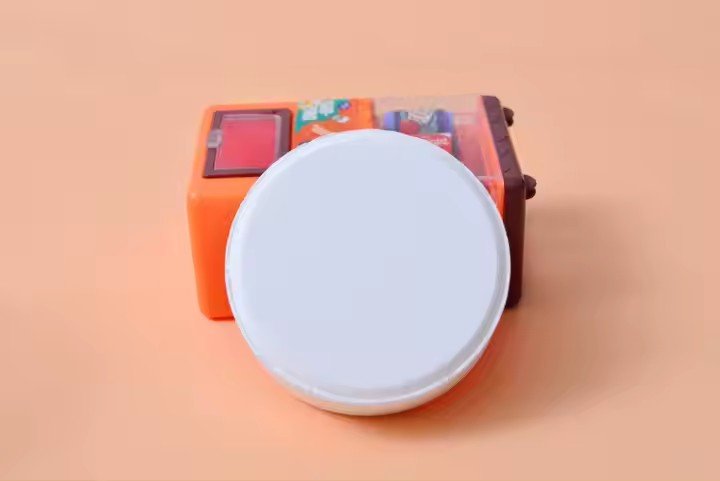Chlorine tablets are a trusted and convenient way to maintain clean and safe water in swimming pools. While they are highly effective at killing bacteria and algae, improper usage can lead to over-chlorination, a condition where the chlorine level in the water becomes excessively high. Over-chlorination can have several negative effects on both swimmers and the pool itself. This article will help you identify the signs of over-chlorination, explain its causes, and provide actionable solutions to fix it.

What is Over-Chlorination?
Over-chlorination occurs when the chlorine level in the pool exceeds the recommended range, typically between 1.0 to 3.0 ppm (parts per million). Excess chlorine can result from using too many chlorine tablets, improper tablet placement, or failing to monitor chlorine levels regularly. Environmental factors, such as high temperatures or reduced pool usage, can also exacerbate the issue by slowing chlorine degradation.
Signs of Over-Chlorination
1. Strong Chlorine Smell
One of the most noticeable signs of over-chlorination is a strong chlorine odor. While many people assume this smell indicates a clean pool, it’s often a sign of an imbalance. Excessive chlorine reacts with organic materials in the water, creating chloramines that produce the strong scent.
2. Skin and Eye Irritation
Swimmers exposed to over-chlorinated water may experience red, itchy skin and burning or stinging eyes. This irritation occurs because high chlorine levels disrupt the skin’s natural barrier and mucous membranes.
3. Faded Swimwear and Pool Equipment
Over-chlorinated water can cause swimwear to fade quickly and weaken over time. Pool liners, covers, and other equipment may also degrade faster when exposed to high chlorine concentrations.
4. Cloudy or Foamy Water
Contrary to popular belief, over-chlorination doesn’t always result in crystal-clear water. Excess chlorine can bind with impurities in the pool, leading to cloudy or foamy water that’s unappealing and potentially unsafe.
Risks of Over-Chlorination
1. Health Risks
Prolonged exposure to high chlorine levels can cause respiratory issues, particularly in indoor pools where ventilation is limited. Over-chlorinated water may also lead to nausea or headaches in sensitive individuals.
2. Environmental Impact
Excessive chlorine in pool water can harm the surrounding environment. When discharged improperly, over-chlorinated water can damage local ecosystems and aquatic life.
3. Cost Inefficiency
Using too many chlorine tablets, especially low-quality or cheap chlorine tablets, can be wasteful and expensive. Over time, it can also increase maintenance costs due to equipment damage and chemical imbalances.
Causes of Over-Chlorination
Over-chlorination can result from several factors, including:
- Adding too many chlorine tablets to the pool at once.
- Placing tablets directly in the skimmer basket, which can concentrate chlorine in certain areas.
- Failure to monitor and test chlorine levels frequently.
- Incorrect pool size calculations when determining chlorine dosage.
- Using poor-quality tablets from unreliable suppliers instead of working with a trusted pool chlorine tablets manufacturer.
How to Fix Over-Chlorination
If you suspect your pool has been over-chlorinated, take the following steps to restore balance:
1. Test Chlorine Levels
Use a reliable water testing kit to measure the chlorine level in your pool. This will help you confirm if the chlorine concentration is too high and determine the extent of the issue.
2. Stop Adding Chlorine Tablets
Remove any remaining chlorine tablets from the pool’s chlorinator, floater, or skimmer basket. Stopping chlorine addition is the first step in preventing the problem from worsening.
3. Dilute the Pool Water
If the chlorine level is significantly high, consider partially draining and refilling the pool with fresh water. This dilution will help lower the chlorine concentration quickly and effectively.
4. Use a Chlorine Neutralizer
Chlorine neutralizers, such as sodium thiosulfate, can reduce high chlorine levels. Always follow the manufacturer’s instructions carefully to avoid over-correcting and creating an under-chlorinated pool.
5. Increase Pool Aeration
Run the pool’s circulation system continuously and use water features, such as fountains or jets, to aerate the water. Aeration encourages chlorine to dissipate faster.
6. Limit Pool Usage
Advise swimmers to avoid using the pool until chlorine levels return to the safe range. Testing regularly during this time is crucial to ensure water safety.
Preventing Over-Chlorination
Prevention is always better than correction. Follow these tips to maintain balanced chlorine levels:
1.Measure Accurately: Calculate the appropriate number of chlorine tablets based on your pool’s size and usage.
2.Use High-Quality Products: Avoid relying on cheap chlorine tablets that may dissolve unevenly or release inconsistent chlorine levels. Instead, work with a reputable pool chlorine tablets manufacturer for reliable results.
3.Test Regularly: Test your pool’s chlorine and pH levels at least twice a week to detect imbalances early.
4.Install a Chlorine Dispenser: Automatic dispensers can regulate chlorine distribution more effectively than manual methods, reducing the risk of over-chlorination.
Conclusion
Over-chlorination is a common issue that can negatively impact pool users, equipment, and the environment. Recognizing the signs, such as strong odors, skin irritation, or cloudy water, is essential for maintaining a safe and enjoyable swimming environment. By understanding the causes and taking corrective steps, such as diluting water or using a chlorine neutralizer, you can restore balance to your pool.
To prevent future issues, use high-quality chlorine tablets sourced from a trusted pool chlorine tablets manufacturer. Regular testing, accurate dosing, and proper maintenance will help you keep your pool clean, safe, and balanced. With these strategies, you can enjoy a crystal-clear pool without the risks of over-chlorination.
